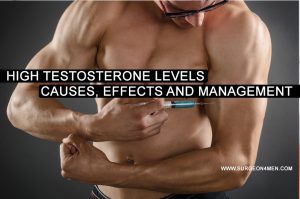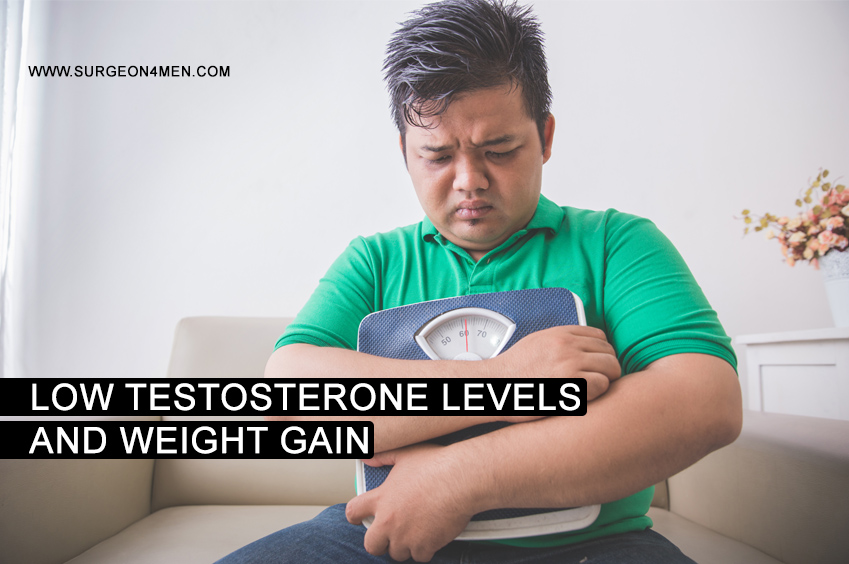Low Testosterone Levels And Weight Gain
if you are not able to pay attention to your work or unable to spend quality time with your loved ones, then you should get your testosterone levels evaluated. It is also important to keep in mind that feeling of fatigue and tiredness are not the only symptom of low testosterone. Many physiological or pathological conditions such as vitamin D deficiency are often misdiagnosed as hypogonadism.
What Are Some Symptoms Of Hypogonadism?
Normal testosterone level ranges from 800 to 1000 ng/dl. But depending upon age, genetical and physiological factors, serum testosterone levels tend to fluctuate in men. But how to know you are suffering from hypogonadism?
If you feel tired all the time, experience poor metabolism and been gaining weight without any changes in the diet or lifestyle; then you might have low testosterone. Clinical study indicates that low T levels in men not only results in putting extra pounds but can also make your bones weak and fragile; thereby leading to osteoporosis. There are numerous ways to treat low testosterone such as, using testosterone replacement therapy in the form of testosterone creams, patches, tablets that will bring testosterone back to normal. Once your serum testosterone levels normalize, you will begin to feel more energetic, active and healthy which ultimately translates into healthy metabolism and overall body weight.
What Is The Connection Between Weight Gain And Low Testosterone Levels?
There is a strong cause-effect relationship between weight gain and low testosterone levels. It has been observed that testosterone levels decline when you gain extra pounds and vice versa. One of the most frequently reported cause of low testosterone (or hypogonadism) is obesity. Most patients are advised to change their dietary habits along with testosterone therapy because testosterone replacement alone doesn’t help in losing weight.
Here are some strategies that may explain the cause-effect relationship between weight gain and serum testosterone levels:
 Normal testosterone levels directly boost the energy levels and motivation in men. This directly helps in living a more active and dynamic lifestyle (2, 4).
Normal testosterone levels directly boost the energy levels and motivation in men. This directly helps in living a more active and dynamic lifestyle (2, 4).- Normal testosterone levels boost basal metabolic rate that helps in shedding extra body weight and fat deposits.
- Dynamic lifestyle (or exercise/ workout) directly boost the secretion of testosterone in the body.
- Workout also helps in promoting the total muscle mass and thus basal metabolic rate. This can directly help in active utilization of dietary calories and optimal weight management. High muscle mass also promotes the secretion of testosterone as suggested by a new study reported in the Obesity journal (2).
How To Deal With Low T?
Men should not feel ashamed if they are experiencing symptomatic hypogonadism; as it is a common condition which can be reversed with therapy and lifestyle modification. If you still feel fatigue or continue to gain weight, get second opinion. Ask your doctor to run all possible tests including testosterone evaluation, that may be helpful in diagnosing the actual problem.
The best way to lose weight is through exercise and healthy diet. People who use testosterone replacement therapy for weight loss are less satisfied with their results as compared to those who control their weight through diet and work out. Your testosterone will surely elevate, if you manage your weight in a healthy manner.
Testosterone Therapy: Are There Any Side Effects Of Testosterone Replacement Therapy?
Not all males can withstand testosterone replacement therapy. It is highly recommended to get fully examined by the doctor to find out if the treatment is suitable or not. The possible side effects include acne, enlarged breasts and increased risk of developing allergic reactions.
Men who opt for therapy must seek frequent monitoring of serum testosterone levels, hemoglobin, hematocrit, colorectal examination and blood screening for prostate-specific antigen.
References
- Sato, K., Samocha-Bonet, D., Handelsman, D. J., Fujita, S., Wittert, G. A., & Heilbronn, L. K. (2014). Serum sex steroids and steroidogenesis-related enzyme expression in skeletal muscle during experimental weight gain in men. Diabetes & metabolism, 40(6), 439-444.
- Saad, F., Haider, A., Doros, G., & Traish, A. (2013). Long‐term treatment of hypogonadal men with testosterone produces substantial and sustained weight loss. Obesity, 21(10), 1975-1981.
- Traish, A. M. (2014). Testosterone and weight loss: the evidence. Current opinion in endocrinology, diabetes, and obesity, 21(5), 313.
- Yassin, A. A., & Doros, G. (2013). Testosterone therapy in hypogonadal men results in sustained and clinically meaningful weight loss. Clinical obesity, 3(3-4), 73-83.

